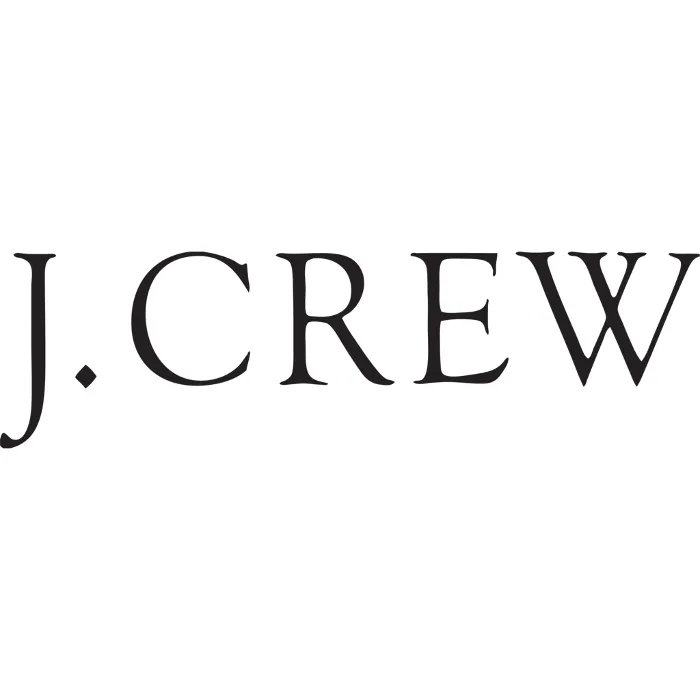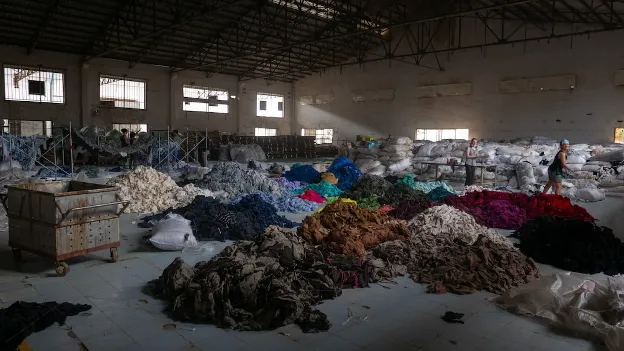J. Crew: Is it Fast Fashion and Ethical?

-
Environmental and Social Responsibility of J. Crew
- Is J. Crew Fast Fashion?
- Improved Transparency
- J. Crew’s “Always” Program
- Commitment to Sustainably Sourced Materials
- Recycled Fibers in Clothing
- J. Crew Clothing Chemicals
-
My Final Thoughts on J. Crew
Despite J. Crew's humble beginnings, they are now an international brand worth over $3 billion.
Each brand has its own story, and J. Crew has a unique and inspiring one.
Most people don’t know that J. Crew was initially called The Popular Sales Club.
According to a Business Insider article, the brand was founded in 1947 by Mitchell Cinader and Saul Charles.
It started as a low-priced women’s outfitter that made sales door to door.
The clothing brand did not take off until the 1980s when it capitalized on being a catalog retailer.
They established a loyal consumer following and saw their sales jump from $3 million to $100 million.
In 1983, the Popular Sales Club was renamed to J. Crew, the brand we all know today.
From there, the company went public in 2006, saw its stock double in two years, and became a notable favorite store of the former United States First Lady Michelle Obama.
But the real question is, how sustainable and ethical is J. Crew?
Environmental and Social Responsibility of J. Crew
For starters, they have a great social responsibility statement.
“We imagine a world where doing good is part of doing business. From the people who create our products to the impact we have on the planet.”
But as we know, talking without the support of action means nothing!
In other words, can J. Crew back up its social responsibility statement? Let’s find out!
Is J. Crew Fast Fashion?
Yes, J. Crew is a fast fashion brand.
One of the key characteristics of fast fashion is its ability to respond to emerging fashion trends swiftly.
J.Crew has excelled in this area by constantly refreshing its collections to align with the latest styles showcased on runways and social media platforms.
By rapidly producing and replenishing its inventory, J.Crew ensures its customers can stay ahead of the fashion curve.
Additionally, J. Crew has often been associated with the fast fashion industry due to its production practices.
The brand, which was once known for its high-quality and timeless pieces, has shifted its focus towards faster production cycles and lower costs.
Unfortunately, this change has come at the expense of the quality of the clothes and ethical and sustainable practices.
J Crew's manufacturing processes involve mass production in countries with lower labor costs, such as China and Bangladesh.
However……..
It shouldn’t be overlooked that J. Crew is making significant strides towards becoming more environmentally and socially responsible.
While there is still much room for improvement, J.Crew has taken important steps to reduce its carbon footprint and promote ethical sourcing within its supply chain.
Improved Transparency
J.Crew's increased transparency regarding its supply chain and manufacturing processes is commendable.
They published their own Environmental, Social and Governance Report in 2022.
However, two areas that need more transparency are their waste management practices and efforts to reduce water consumption during clothing production.
J. Crew’s “Always” Program
The introduction of their "Garment Recycling" program allows customers to donate old clothing, reducing waste and promoting a circular economy.
Commitment to Sustainably Sourced Materials
J. Crew’s increased commitment to using sustainable materials, such as organic cotton and recycled polyester, showcases their dedication to reducing the environmental impact of their products.
The clothing company has set a goal of buying 100% of its key fibers (90% of total fibers used - cotton, polyester, nylon, cellulose, wool, cashmere, and leather) from sustainable sources by 2025.
As of 2022, J. Crew has reported that 60% of its key fibers come from sustainable sources.
For example, J. Crew plans to eventually source its entire cotton from certified organic cotton, recycled cotton, and/or cotton sourced through the Better Cotton Initiative, a nonprofit dedicated to making global cotton production more sustainable.
Their partnership with the Better Cotton Initiative and the Responsible Down Standard demonstrates a growing commitment to sourcing materials ethically and responsibly.
Recycled Fibers in Clothing
For certain clothes, J. Crew has been finding ways to use recycled or “upcycled” products as materials.
This includes recycled nylon (fishing nets, fabric scraps, or old clothes) and recycled polyester (plastic bottles, fabric scraps, or old clothes).
Besides keeping your current clothes longer, buying clothes made from recycled materials is the next best thing!
However, only a tiny fraction of clothes are made from these upcycled materials.
And the clothes made with upcycled materials account for only up to 30% of the pieces total material.
J. Crew Clothing Chemicals
J. Crew uses the Apparel and Footwear International RSL Management (AFIRM) Restricted Substance List to manage their chemicals in their supply chain and products.
This is important because a Greenpeace investigatory report has shown a link between textile manufacturing facilities using hazardous chemicals and the presence of chemicals in the final product.
Many fashion brands know these chemicals are toxic; however, most continue using them because there are no viable alternatives.
For example, formaldehyde, a carcinogen (a substance capable of causing cancer), is used during the finishing process of clothing and helps provide anti-wrinkle characteristics.
For all fair-trade clothes, J. Crew must restrict or limit harmful substances. “Facilities must eliminate toxic and hazardous substances from products and operations.”
However, like recycled fibers, only a tiny fraction of J. Crew’s clothes are fair-trade.
My Final Thoughts on J. Crew
J. Crew is a massive clothing company. They have taken several reasonable steps towards becoming more sustainable. Their re-imagined clothing line is worth a look.
However, they still have a long way to go.
Based on their online website, their re-imagined and fair-trade clothes are only a fraction of all the clothes that they sell.
You can shop for J. Crew products on their website, https://www.jcrew.com/c/shops/reimagined.
Make sure you are browsing in the Re-imagined category, though!
-
Environmental and Social Responsibility of J. Crew
- Is J. Crew Fast Fashion?
- Improved Transparency
- J. Crew’s “Always” Program
- Commitment to Sustainably Sourced Materials
- Recycled Fibers in Clothing
- J. Crew Clothing Chemicals
-
My Final Thoughts on J. Crew



